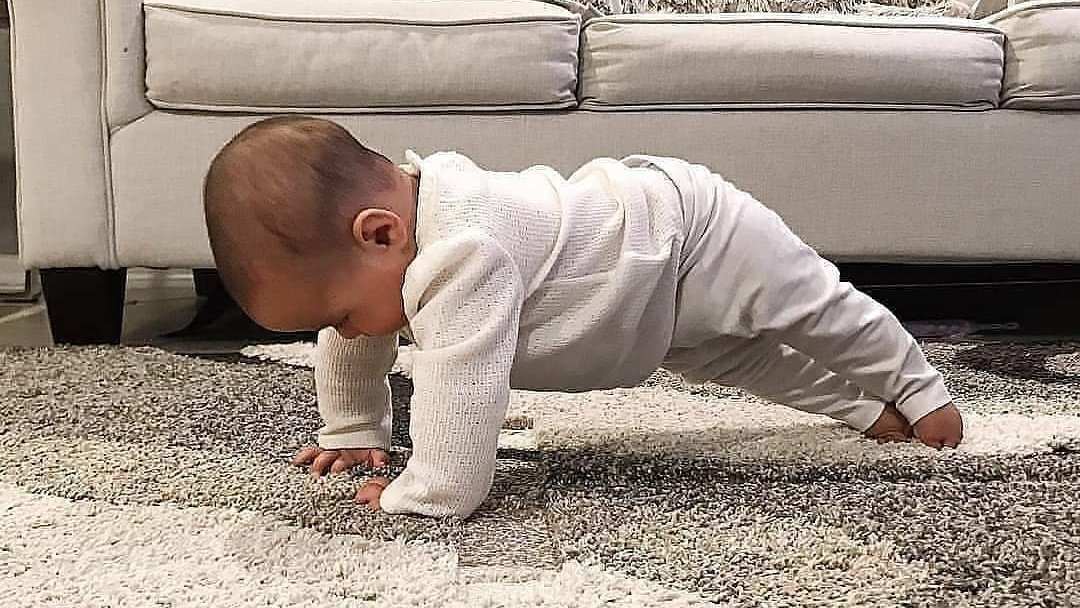There’s something incredibly endearing about witnessing infants engage in physical activity. From their plump little limbs to their joyous laughter, it’s difficult not to feel a sense of delight when observing their attempts to move and stretch their bodies. However, were you aware that exercise actually plays a valuable role in promoting a baby’s development? In this piece, we will delve into the significance of physical activity for infants and provide some enjoyable methods to incorporate movement into their everyday routines.

The Importance of Exercise for Infants Similar to adults, infants require physical activity to support their healthy growth and development. Engaging in exercise plays a crucial role in strengthening their muscles and bones, enhancing cardiovascular health, and improving overall well-being. Additionally, exercise is vital for promoting motor skill development in infants, including milestones such as crawling, walking, and running.

In addition to the physical advantages, engaging in exercise can also contribute to the cognitive and emotional growth of a baby. Studies have revealed that physical activity has the potential to enhance brain function and boost mood in infants and young children.
Ways to Include Physical Activity in a Baby’s Daily Schedule
While infants may not be capable of hitting the gym or going for a run, there are plenty of ways to incorporate physical activity into their daily routine. Here are some simple and enjoyable ideas to get started: Tummy Time: Tummy time is crucial for babies as it helps strengthen their neck, back, and shoulder muscles. Begin with a few minutes of tummy time each day and gradually increase the duration as your baby becomes stronger. Dance Party: Put on some lively music and have a dance party with your little one. Hold them close and sway to the rhythm or let them wiggle and bounce on their own. Baby Yoga: Baby yoga is a gentle way to stretch and strengthen a baby’s muscles. There are numerous online resources that offer baby yoga routines, or you can create your own by gently moving your baby’s arms and legs into different positions. Sensory Play: Sensory play is a fun way to get babies moving and exploring their surroundings. Provide them with textured toys, such as soft balls or stuffed animals, and encourage them to reach, grab, and play. Swimming: Swimming is an excellent low-impact exercise for babies as the water provides resistance to help build strength and coordination. Just ensure that you choose a warm, shallow pool and never leave your baby unattended in the water. Tips for Exercising Safely with Babies: 1. Choose appropriate activities: Opt for activities that are safe and suitable for your baby’s age and developmental stage. 2. Ensure proper supervision: Always exercise with your baby under close supervision to ensure their safety. 3. Create a safe environment: Clear any potential hazards, such as sharp objects or slippery surfaces, from the exercise area to minimize the risk of accidents. 4. Follow proper technique: When engaging in activities like baby yoga or tummy time, use gentle and controlled movements to avoid straining your baby’s delicate muscles. 5. Listen to your baby’s cues: Pay attention to your baby’s signals and stop any activity if they seem uncomfortable or distressed. Remember, exercise should be enjoyable and beneficial for both you and your baby. By incorporating these ideas and following these safety tips, you can promote your baby’s physical development in a safe and engaging way.

When it comes to a baby’s development, exercise plays a crucial role. However, it is vital to prioritize safety while incorporating movement into their daily routine. To ensure your little one’s well-being, here are some essential tips to consider:
Always keep a close eye on your baby while they are exercising to ensure their safety and comfort. Begin with short exercise sessions and gradually increase the duration as your baby becomes stronger. Avoid overstimulation and allow your baby plenty of rest between exercise sessions. Choose exercises that are suitable for your baby’s age and level of development. If you have any concerns or questions about your baby’s exercise routine, consult with your pediatrician. In conclusion, it is important to supervise your baby during exercise, gradually increase the duration, provide ample rest time, choose appropriate exercises, and seek professional advice if needed.
Experience the Delight of Infant Exercise: Essential for Progress, Development, and Bonding Observing infants engaging in exercise not only warms the heart but is also crucial for their overall progress and development. By incorporating physical activity into their daily routine, you can support the development of strong muscles, enhance their cardiovascular health, and improve their cognitive and emotional well-being. From tummy time and baby yoga to energetic dance parties, there are numerous enjoyable and uncomplicated ways to encourage your baby to move and groove. Join your little one in these activities and embark on a journey of exercise, growth, and bonding together!
“Exciting Adventures: Begin a Daily Fitness Journey with Your Infant”




